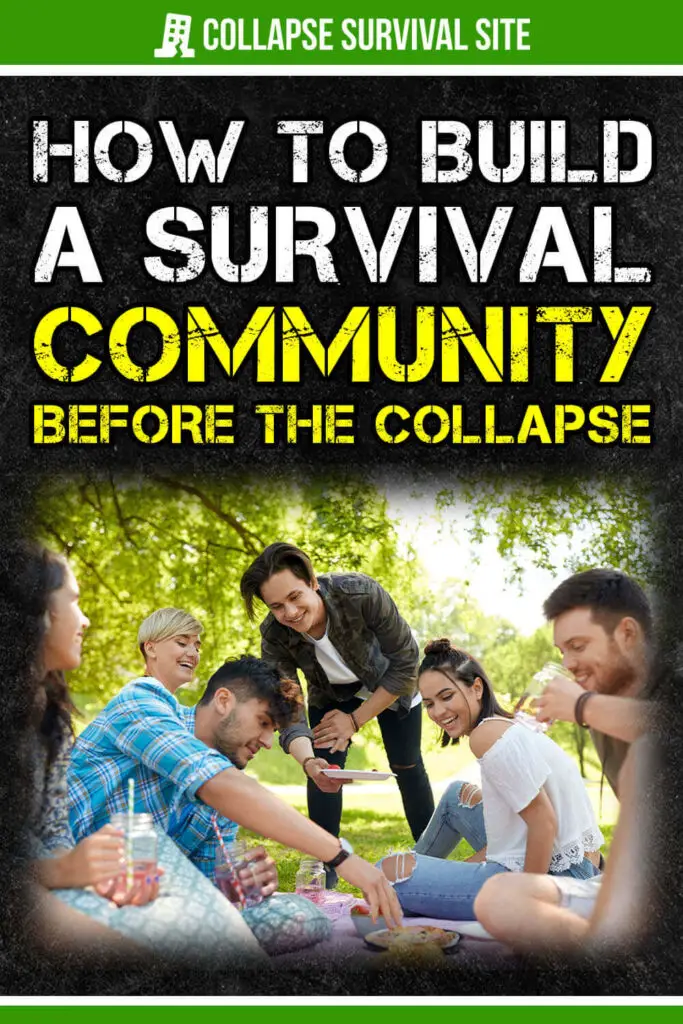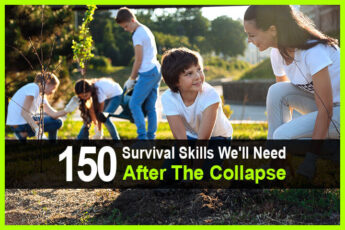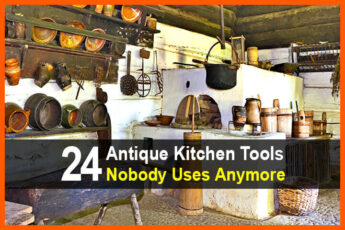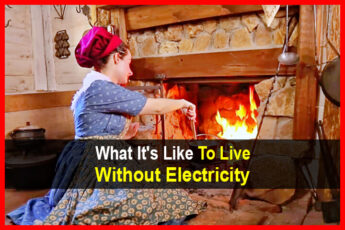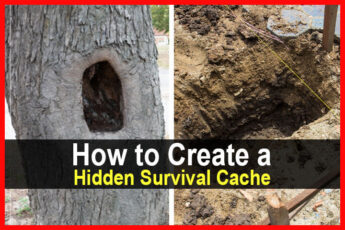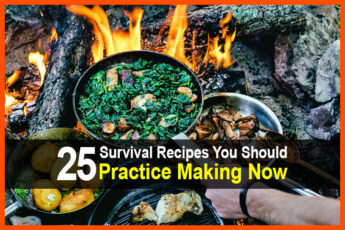Estimated reading time: 21 minutes
A common mantra often repeated in desperate times is that there’s safety in numbers. It’s proven itself over thousands of years as tribes and small villages lived together and cooperated, allowing individuals to not only fend for themselves but to support their community.
Unfortunately, our lives and lifestyles today represent a far departure from those days of long ago. We live in tall apartment buildings in cities and our only interaction with our neighbors is often the brief small talk of an elevator ride measured in minutes.
We live in suburban neighborhoods where we wave at neighbors and smile but rarely know or remember their names. We live in rural or wilderness areas where we may know a neighbor or two, but most of our interactions with others are defined by a brief wave of the hand to passing cars and trucks.
In so many ways, our sense of community has been lost.
Want to save this post for later? Click Here to Pin It On Pinterest!
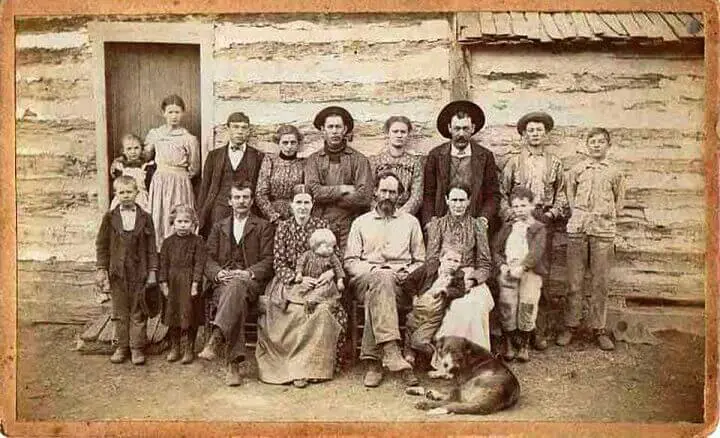
And Are Preppers Really Different?
Not as much as many would like to think. For many people preparing for events following a disaster or the collapse of society, the preparations are defined by a traditional lone-wolf mentality. We’re prepared, but we’ve learned the hard way that sharing information about preparedness with neighbors is often greeted with skepticism or scorn.
As a result, we turn inward and quietly continue our preps, reluctant to share any information about preparedness for fear of being regarded as eccentric, or the very real concern that unprepared neighbors will show up at our doors looking for handouts.
The result is that we may find ourselves totally on our own in a situation that is completely overwhelming, even for seasoned preppers.
There’s something to be said for not advertising any preparations for the coming challenges ahead, but it may be the biggest barrier to effectively building any kind of survival community.
In spite of the challenges, building a community of local preppers is something that should be done, and we’re going to examine how and what to do to make it happen.
Survival Community Location
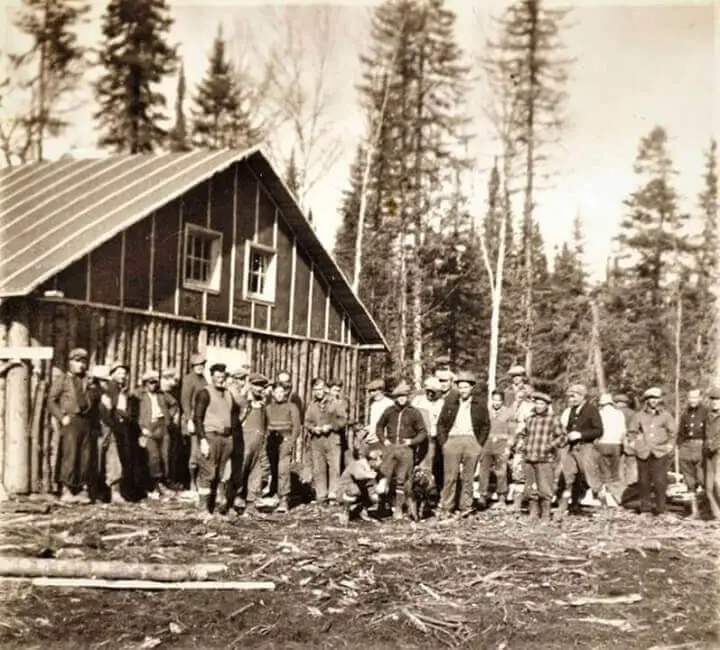
The location of a community can be defined in a variety of ways. An obvious community solution is for everyone to occupy the same dwelling.
Many people do that today, just under normal circumstances. Elderly parents often live with one of their children, and many adult children still live with their parents.
In some instances, two or three families share the same house, especially now with the rising costs of rents and real estate. It may be the best scenario for a community, but multiple families in such close proximity will create some stress.
Another community solution is shared acreage. There are many occasions where a family will own property with 2 to 3 or more houses and outbuildings on the same piece of property.
They do this just because it often makes sense, but in desperate times, it can be a very smart move. Unfortunately, it’s not an easy thing to implement on short notice.
Another type of community is defined by a network of family members who live in relatively close proximity. This requires travel to interact with other members of the community.
That can be a problem if a collapse is caused by riots in the streets or a massive natural disaster, but it may be possible. In the same way that families gather around the holidays, this kind of community would have more frequent get-togethers to share resources, skills, and support.
More extreme communities are quickly improvised on a dedicated piece of property either with assembled RV’s, quickly built tiny-homes, or even tent cities. All of these communities are happening now as more and more people find the cost of housing to be out of reach.
Ultimately, the location of a community emerges and evolves as the community grows and matures. But before anyone can start thinking about location, the most critical consideration is figuring out how to form and build a survival community to begin with.
It’s Starts with Your Family
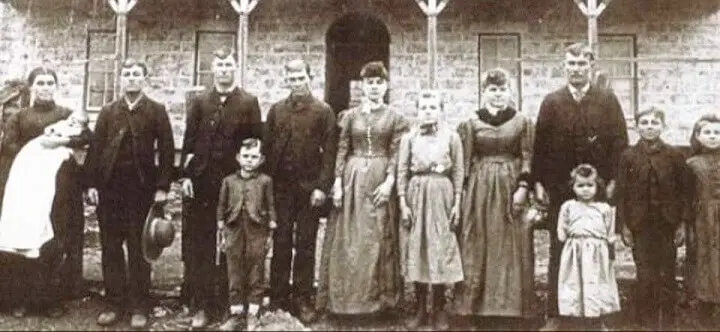
In spite of what we often see on YouTube videos where a young, strong man talks about how he’s ready to survive with his smartly packed bug-out bag, most of us have not only spouses but children, elderly parents, and a few siblings to think about.
It’s hard to imagine a father or mother walking away from their kids, parents, or brothers and sisters to keep only themselves alive and healthy. The result is that we prepare with their needs in mind. And not only are they the best people to confide in about preparations, they can form the initial nucleus of your survival community.
Here Are Some First Steps to Begin a Community.
Talk to Your Immediate Family About Preparedness
Don’t scare the kids, but make them aware that you want to be ready to take care of each other following something simple like a power outage or the increasing costs of food and other things.
In your mind, you’re preparing for more than common events, but it’s a good way to open the conversation.
Teach Them What You Know
Anyone preparing for desperate times has not only taken the time to stock, store, and assemble things for an uncertain future, but have acquired many of the survival skills and knowledge needed to sustain themselves following a collapse.
Share that knowledge. Make gardening and canning food with the kids a fun project. Teach them about wild foraging. Put together a first aid kit and show them how to approach basic first aid.
Think of all the things you know and try to find ways to share that knowledge in an interesting and engaging way with your kids. You could do this with a spouse of other family members as well.
Engage Your Extended Family
Many of us have brothers and sisters, parents and aunts, and uncles and cousins. These are people we know well and are often the most trustworthy relationships we have.
Talk to them about some of the things you’re concerned about, whether it’s the growing violence of society, the poor quality and reliability of our water supplies, the rising price of food and everything else, or the looming threat of nuclear war.
Talk to Your Extended Family About Basic Preps
You can’t stockpile enough for every aunt, uncle, and cousin you have, but you can encourage them to start thinking like a prepper.
Some of them may surprise you and say they’re already doing that but were reluctant to bring it up. Others may agree and ignore the advice but at least you have them thinking about it.
What’s important is that you’ve started the conversation with the people you know and trust the most. As time goes on and the news of the world continues to make our future look worse, you can expand the conversation to the next step with your extended family group.
Assess the Strength of Your Community
The strongest communities demonstrate a diverse set of skills and knowledge. If you think about your hometown, you probably know where to find experts who can help you with things around your home
You also probably know of other people like a good dentist, plumber, or restaurant. At a time when local goods and services will most likely not be available, you have to think about whom in your group might best satisfy those needs.
Here’s where to start:
Make a List of The People in Your Extended Family
This will be the catalyst for your survival community. As you think about each person, take notes of the following qualities and characteristics. You may be aware of these qualities simply because you have had an extended period of time to get to know and hear about them.
Age
- Who are the most physically fit in terms of age?
- Are there infants or toddlers that need special attention due to their age?
- Are there elderly members who possess significant knowledge and experience but may not be physically strong?
Health and any medical conditions
- Is anyone diabetic, on significant blood-pressure medication, blood thinners, or need any other type of consistent care for a chronic condition?
- Is anyone in need of physical assistance with a wheelchair, walker or other prosthetic devices?
Background and professional skills
- Is anyone a doctor, nurse, paramedic or EMT? At a time when medical services may be overwhelmed or simply unavailable, the ability of someone to actively treat injuries and illness can be a life-saving skill.
- Is anyone a skilled tradesman like a carpenter, mason, or experienced in any other construction trade?
- Is anyone an engineer or scientist who can design and define improvised solutions to problems?
- Is anyone in your extended family known as an exceptional gardener? Their ability to grow both indoors and outdoors may be one of your most reliable sources of food, and they can advise everyone on how best to get the most out of any crop.
- Is anyone known as a great cook or have certification as a professional chef?
- Does anyone have homesteading experience with knowledge of farming, animal husbandry, wild foraging, water filtration, and storage or other self-reliant skills?
- Has anyone ever demonstrated significant knowledge of food preservation like canning, smoking, or dehydrating plus knowledge about food storage and symptoms of spoilage?
- Does anyone have a military background and knowledge of firearms, survival or battlefield strategy and tactics?
- Is anyone a therapist, counselor, or social worker with experience managing personal conflicts and challenges?
- Does anyone have good project management or strategic skills to design solutions for the community, from assigning tasks to managing inventories and tracking resources and anticipating future needs?
- Is anyone a teacher? At a time when stores are closed or shuttered and even local fire and police services are limited, it’s quite likely schools will be closed. Online learning is always a possibility, assuming the Internet is still functioning. Home schooling may be the only alternative, and a certified teacher can take the lead.
- Is anyone a community librarian? If the Internet is down or unreliable, books may be the only source of reliable knowledge. A person dedicated to keeping an active library of books can be a significant asset.
The goal of this list is to identify the strengths and weaknesses in your community. If you’re from a family of doctors but none of them have ever lifted a hammer to build something, you know where your strengths and weaknesses are.
That gives you the opportunity to carefully extend your community—carefully.
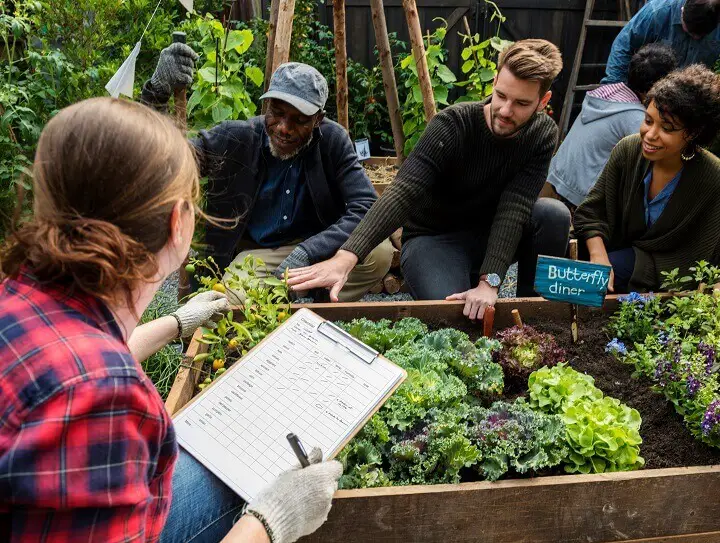
Building your Community Beyond Extended Family
Before we jump to trusted friends and neighbors, there’s a closer consideration. Many family members from brothers and sisters to cousins, nieces, and nephews are married.
It goes without saying that their spouses will accompany them under any circumstances, and they have families too. That’s a good place to start as you think about expanding skill sets and strengths.
It’s also quite likely they’ll bring some added challenges like young children or family members who are not as strong or skilled as others.
It doesn’t matter. You really can’t exclude anybody from your family. and you simply have to take note of the growing strengths and weaknesses that your growing community may share.
Extended family is still a good way to build your community because the spouses of your family members will often fall in the category of trustworthy community members who will not be unknown or mysterious in terms of their background, knowledge or disposition.
There’s a good possibility that your cousin or brother can vouch for them, and it’s possible you may have met them and interacted with them in the past, so you have a good read on how they might (or might not) fit in.
In some cases, you may have no choice. If your brother’s wife has parents who want to be in your community group, it may be a bad idea to say no even if they are infirm or can provide little to the community. It’s just another reality you have to anticipate.
The Friends and Neighbor Dilemma
This is all about a matter of degree. To what extent is anyone involved directly in your survival community, and to what degree do they get to share in the resources the community develops?
When we think of a community, it often seems that those people in our neighborhood define that concept. But you have to ask yourself how well you really know your neighbor.
We’ve all heard the stories about someone committing a terrible crime only to have the neighbors show up on the news expressing disbelief. Unless you have developed a long and strong trusting relationship with a neighbor, it’s best to keep any community cooperation simple at the outset.
One idea is to get the neighborhood to plant gardens and to encourage people to plant certain things that can later be swapped for fruits or vegetables from another neighbor.
Here are some examples:
- If someone has a large yard that can support a variety of fruit trees, they could be a neighborhood barter source for fruits.
- If someone has a tall fence that can support multiple vines, they could plant pole beans and other vining vegetables.
- If someone has a wide open but fenced backyard, they could be a source for tomatoes and other bushy vegetables.
There are other examples, but you get the idea. The critical point is that this is more of a peripheral community.
These people aren’t living with you, and you’re not actively sharing everything, but you have agreed to cooperate on some level with efforts that will demonstrate the basic strength of a community: division of labor.
It’ll be important to evaluate how you barter any of these fruits or vegetables and what defines an even trade for anything, but it’s a simple example of how something as basic as a neighborhood can begin to work together to get through the worst of times.
The Same is True with Friends
Friends vary, from best friends forever to friends of friends. It could even be someone we know from church or a club or organization we belong to.
The thing to remember is that everyone brings with them a family, and you have to assess to what degree you’ll share your life and resources, not only with your friend but with their family as well.
This is another time to think about allocating resources in a limited way to satisfy a need or offer assistance, but preserve and reserve the most critical resources for the immediate family and community.
Moving Beyond Family and Friends
Some of us may find that we have small families or have moved away from most of our old friends. Others may have little or no family connections at all. People like that might feel like they’re doomed to be a lone wolf.
But for people who recognize the value of a survival community and don't have the connections or are suddenly in a new or remote area, there are solutions. It will involve reaching out to people we don’t know to try to build some common connections to either create or become part of a prepper community.
There are a few ways to approach this, but any approach should be done slowly and carefully. Preppers are typically risk-averse people and are often reluctant to share information with strangers. That’s a wise course of action given the number of scammers and con artists these days.
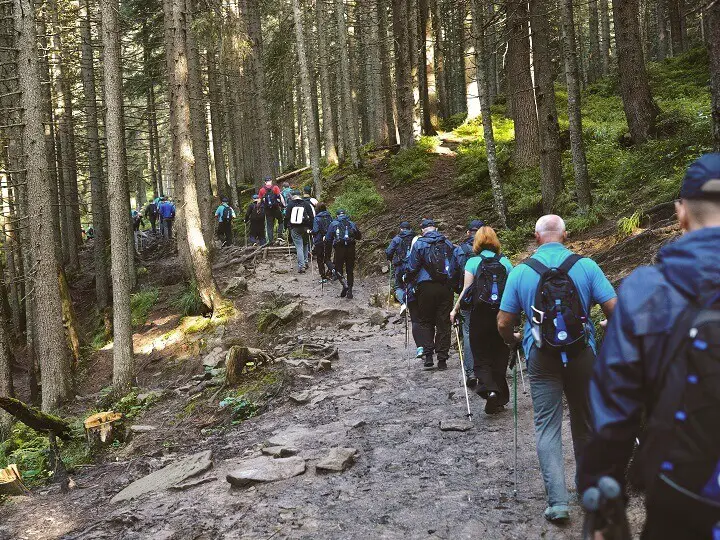
How to Find Fellow Preppers
Online
The fastest way to begin a search for like-minded people is online. There are dedicated prepper boards and communities where you can exchange ideas, ask questions, and do a simple inquiry about how and where to join local prepper groups.
Here are links to some of those boards and online groups:
There are also prepper groups on Facebook and Pinterest:
- AmericanPreppers Network (Facebook)
- Prepperlink (Pinterest)
There is also a website called Meetup.com where people share common interests and ideas.
One caution about Facebook, Pinterest, and Meetup.com: These sites share a lot of information about you. The dedicated sites like survivalistboards.com and preppergroups.com offer you the ability to appear anonymously. That’s up to you, but be aware.
If you want to use the Internet to meet preppers in your area, go slow. Spend some time browsing the sites and engage in some general conversations.
Many people on the site will probably be as cautious as you are, but over time you have the potential to build some trusting relationships that could lead to an expanded survival community.
Volunteer
Every city and town depends on volunteers to help with various activities, and many of those activities are related to disaster preparedness and response.
It should be no surprise that many preppers are part of those volunteer groups, and stepping up to volunteer is an excellent way to build a trusting relationship with a fellow prepper in a face-to-face effort.
Groups to consider volunteering for include:
CERT (Community Emergency Response Team)
Community Emergency Response Teams are widespread in America and are one of the more comprehensive ways to get involved as a prepper. These teams are funded and fall under the Citizen Corps, supported and trained by FEMA (Federal Emergency Management Agency), and relied upon by local government agencies to assist when disasters strike.
Learn about CERT and how you can join here: Community Emergency Response Teams
CERT members go through a lot of disaster response training, so CERT can be a great learning opportunity as well. As a CERT member, you will be expected to learn and organize into roles that involve leadership, safety, fire suppression, search and rescue, medical triage, and medical treatment.
CERT is an integral part of the Incident Command System (ICS) used for disasters and emergencies, so it also gives insight into how the Department of Defense, Homeland Security, and FEMA all work together to respond.
Red Cross
The Red Cross is a huge organization and has an opportunity for everybody. They are far-reaching globally, and relied upon by many organizations for a wide array of support, from humanitarian aid to information sharing.
The American Red Cross provides about 40% of the blood in the United States, and its blood drives and services are one of its largest assets. They provide disaster relief and military support as well. From medical professionals to teenage students, they are on the front lines of disaster relief and need able bodies.
Their sign-up process is relatively straightforward: American Red Cross Sign Up
Amateur Radio Groups
HAM radio is a great hobby that many preppers get into and enjoy. While it does require a license and taking a test, being a radio operator opens up a whole world of opportunities ranging from disaster assistance to SHTF survival.
Your local amateur radio club can also provide information on how they get involved in regional disaster response and keep the communication flowing when the grid goes out.
Amateur Radio Emergency Service (ARES) is the main volunteer opportunity for a radio operator, which requires some training. ARES will expect you to be able to operate the equipment under hardship, so basic survival and prepping skills will be needed.
You will be expected to assist during disasters and emergencies, so you will need to make sure your family is prepared to sustain themselves in one of these situations so you can perform your ARES duty.
More information and how to sign up with ARES: Amateur Radio Emergency Service
Prepper Events
There are numerous planned and coordinated events across the country that invite preppers from the local area to meet and learn about various survival skills, the latest equipment and even offer training and meetings about various aspects of preparedness.
Here’s a link to a website that identifies locations and dates: PrepperShowsUSA.com
No matter how you seek and approach fellow preppers, remember to go slow, observe, and get a feel for the people you are interacting with. It may be unwise to open the conversation with, “Hey, I’m starting a prepper survival community. Anyone want to join?”
Get to know these people first.
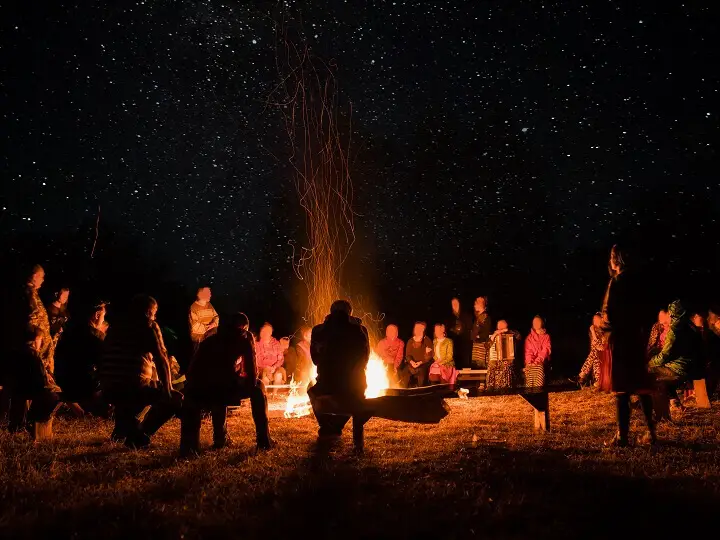
It’s More About Skills than “Stuff”
All stockpiles run out. All gardens die in winter. Sharing stuff with a community makes sense, especially if the community has collectively grown, built, or produced the stuff we all need, but it’s the skills we possess that ultimately define our greatest value to any community.
Stockpiling allows us to use the things we have while they list. Skills allow us to make and create the things we need in a way that is sustainable and self-sufficient. Some skills take years to master, while others can be acquired with a bit of research and a fair amount of practice.
Anyone who has acquired skills will offer the greatest value to a community. What’s critical is to make sure that everyone shares their knowledge and teaches other community members the fundamentals of those skills in case someday they’re no longer a member of the community.
Some of these skills may not be relevant if you live in an area where they cannot be used, such as timber skills in a city, but most will be missed if no one in the community knows how to do them.
Here are some of the key skills multiple people in a community should strive to acquire or learn from community experts at least to some degree:
- Medical skills including how to improvise first aid supplies and equipment along with treatments such first aid for cuts, wounds, burns, broken bones and sprains, deep wounds, suturing, choking, CPR, poisoning, basic dental first aid, eye injuries, and even childbirth basics.
- Gardening skills including composting, soil preparation, seed harvesting and storage, basic natural pest controls, harvesting and storage.
- Food preservation skills including canning, brining, fermentation, dehydrating and drying, smoking and storage.
- Water storage skills including harvesting from natural sources including rain water plus filtration, purification and storage.
- Home and community defense skills including home or dwelling security, perimeter security, watch duty, firearms training and maintenance, security alerts from trip wires to video, practice and training in how to defend from theft and assault, defense on the road, knowledge of strategy and tactics.
- Cooking skills including cooking for a crowd, baking bread, improvising recipes, cooking over open fires, simple foundation recipes, basic cookware use and maintenance.
- Interpersonal skills for dealing with stress, emergencies, conflict resolution and community empathy.
- Animal husbandry skills including basics for raising poultry, rabbits, and other small farm animals plus butchering skills.
- Wild foraging skills including all season foraging, knowledgeable plant identification, what to harvest, backyard foraging, making ingredients like flour and other staples from foraging, and recipes.
- Communication skills including Morse code, HAM radio, basics of CB radios, two-way radios, survival signaling from flashlights to semaphore and other solutions.
- Heating and cooling skills including alternative heat sources, cooling techniques for homes and outbuildings, wood stove basics, building a fire, and improvised heating solutions.
- Basic repair skills including carpentry, plumbing, electrical and electronic, roofing, and masonry.
- Sewing skills including knitting, crochet, sewing and clothing repair, leather working, cobbling and weaving.
- Blacksmithing skills including basic forge construction, basic techniques for making and repairing metals, basic iron works including tools, knives, and other useful equipment.
- Lumber and timber skills including knowledge of tools, techniques for felling trees, creating lumber from trees, timber frame construction and other rough lumber skills.
- Rustic furniture construction skills including furniture from logs, furniture repair, caning chairs, willow chair construction, and other furniture that can be improvised from timber.
- Sanitation skills from doing laundry without a washing machine to portable toilets, outhouse construction, composting toilets, soap making, homemade hand sanitizer, DIY toilet paper, and DIY skin care lotions and antiseptics.
There are other skills, such as plumbing repairs or automotive and small engine repair, that may or may not be required, depending on the situation, but if you determine it’s a needed skill, either find someone who knows it or identify people who are willing to learn it.
Leadership and Management of the Community
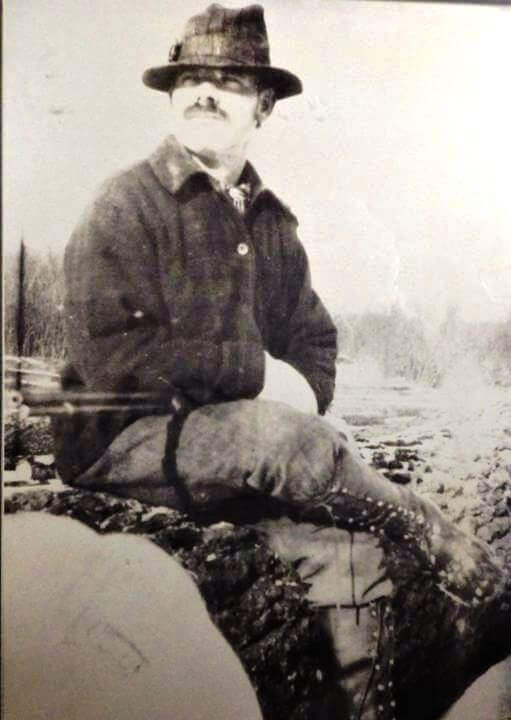
The success or failure of any community is simply defined by how they get along. In a stressful time conflict, arguments and disagreements are inevitable. Identifying leaders to manage certain aspects of community functions will make it easier to guide and direct efforts and potentially resolve conflicts.
Leaders can be elected or they can emerge. The characteristics of good leaders are defined as someone who is open, honest, empathetic, and willing to consider all points of view and then clearly explaining the reason for any decision they make.
What’s more important is that every community member strives to allow different opinions and ideas to be expressed and demonstrate some compassion towards others who are struggling with the intensity of desperate times.
This is especially important when dealing with children. Strive to be compassionate and caring.
It should be easier in a family group that already has well-developed connections, but even families have their share of conflicts, so make sure conflict resolution and ways to mediate disagreements are anticipated and discussed.
Can it Work?
Yes, and it has for thousands of years. Following the failure of larger governments and systems in the past, the only solution for survivors was to collect in a community to preserve some level of stability and security with the help of others.
The degree to which anyone survives collapse is directly proportional to that ability to create and maintain a stable community driven by need, fueled by sharing, and united by compassion for one another.
Like this post? Don't Forget to Pin It On Pinterest!

